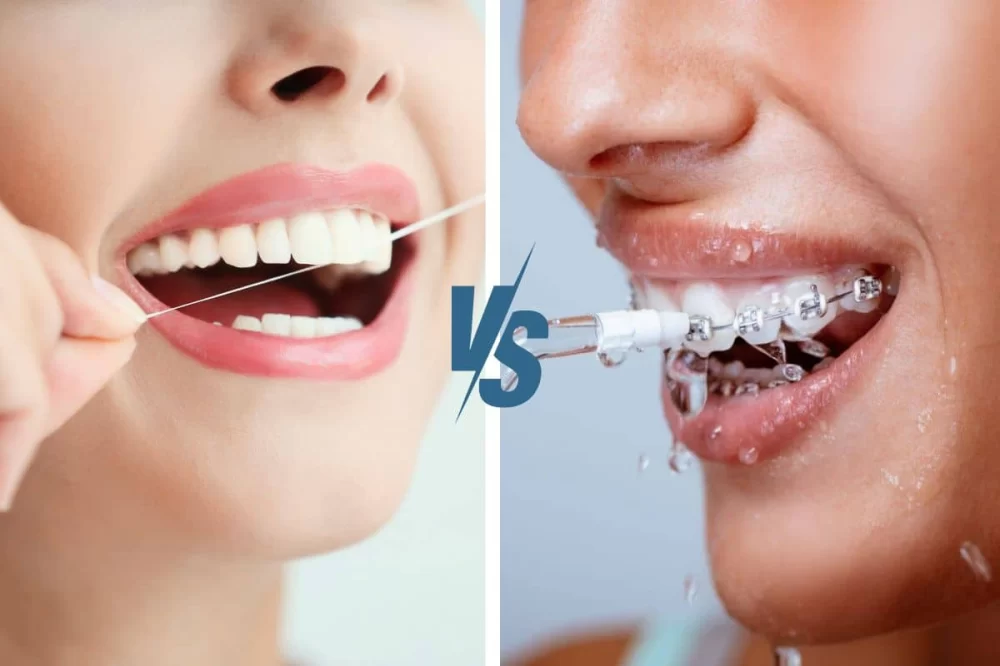
- Why Flossing Matters for Oral Health
- How Flossing Prevents Common Dental Problems
- Daily Flossing: Practical Tips to Make it a Habit
- Real-Life Examples Highlighting Flossing Benefits
- Professional Advice and Recommendations
- Finding the Right Products for Your Flossing Routine
1. Why Flossing Matters for Oral Health
Many people underestimate the importance of flossing daily, focusing solely on brushing. However, flossing plays a crucial role in maintaining optimal dental hygiene. Brushing alone cannot reach the tight spaces between teeth where food particles and plaque accumulate. This buildup, if left unattended, can lead to serious oral health issues such as cavities and gum disease.
Understanding the importance of flossing daily goes beyond just keeping your breath fresh. It helps prevent inflammation of gums, known as gingivitis, and reduces the risk of periodontitis, which can cause tooth loss. These conditions can also have broader health implications, potentially affecting heart health and diabetes management.
By integrating flossing into your daily routine, you ensure comprehensive cleaning that supports long-term oral health and overall well-being.
1.1 The Science Behind Flossing
Dental plaque is a sticky film of bacteria that forms continuously on teeth. If not removed, it hardens into tartar, which brushing cannot eliminate. Flossing disrupts this plaque formation between teeth, reducing bacterial growth in these difficult-to-clean areas.
Moreover, flossing stimulates the gums, promoting healthy blood circulation. This stimulation helps maintain gum tissue resilience and lowers the chances of gum recession.
2. How Flossing Prevents Common Dental Problems
Neglecting to floss can lead to several common but preventable dental issues. Let’s explore how daily flossing helps to avoid them:
2.1 Preventing Cavities
Cavities often develop between teeth because these areas are harder to clean with just a toothbrush. Flossing removes trapped food debris and bacteria, lowering acid production that causes enamel erosion and tooth decay.
2.2 Avoiding Gum Disease
Gum disease starts when plaque irritates the gums. Daily flossing helps clear the plaque before it leads to inflammation and bleeding gums, common signs of gingivitis. If untreated, this condition may progress to periodontitis, damaging the bone supporting your teeth.
2.3 Reducing Bad Breath
Food particles stuck between teeth can cause bad breath by providing a breeding ground for bacteria. Flossing disrupts this process, keeping your breath fresher throughout the day.
3. Daily Flossing: Practical Tips to Make it a Habit
Many people know flossing is important but struggle to maintain a consistent routine. Here are some strategies to help make flossing a natural part of your day:
3.1 Choose the Right Floss
There are many types of floss—waxed, unwaxed, tape, and even floss picks. Experiment with different kinds to find what feels easiest and most comfortable for you.
3.2 Set a Reminder
Pair flossing with a daily habit, like brushing your teeth or before bedtime rituals, to build consistency. Setting phone alarms or notes can also serve as helpful prompts.
3.3 Master the Technique
Proper flossing technique is essential. Gently curve the floss around each tooth, sliding it beneath the gum line without snapping it, which can hurt gums. Taking time to floss all teeth thoroughly makes a significant difference.
4. Real-Life Examples Highlighting Flossing Benefits
Consider Sarah, a young professional who ignored flossing for years. She frequently suffered from bleeding gums and occasional toothaches. After learning about the importance of flossing daily from a dentist, she adopted a strict flossing routine. Within months, her gum health improved dramatically, and dental visits became less stressful and costly.
Another example is Michael, a father who struggled to convince his children to floss. By sharing stories and demonstrating flossing fun, he turned it into a family ritual. This not only improved their dental health but also created a positive atmosphere around oral care.
5. Professional Advice and Recommendations
Dental professionals consistently emphasize the importance of flossing as part of comprehensive oral care. According to dentists, flossing complements brushing and professional cleanings, reducing the risk of oral disease significantly.
Experts also recommend regular dental check-ups where flossing technique can be reviewed and personalized advice given. For people with braces, implants, or other dental appliances, specific flossing tools may be necessary, which professionals can guide you to choose.
6. Finding the Right Products for Your Flossing Routine
Choosing the right dental floss and related products enhances your daily experience and effectiveness. Whether you prefer traditional floss, floss picks, or water flossers, selecting high-quality products tailored to your needs is key.
For those looking to explore the best options, Dentistry Toothtruth offers a wide range of carefully curated dental hygiene products, services, and expert recommendations. Their selection includes floss types suited for sensitive gums, flavored options to make flossing enjoyable, and innovative tools to fit any lifestyle.
Investing in proper flossing supplies is a small but impactful step towards maintaining healthy teeth and gums over the long term.







 Perfect Teeth Dental - South 8th4.0 (280 review)
Perfect Teeth Dental - South 8th4.0 (280 review) The Smile Institute Advanced Dentistry & Orthodontics4.0 (256 review)
The Smile Institute Advanced Dentistry & Orthodontics4.0 (256 review) Ray Dental Group4.0 (338 review)
Ray Dental Group4.0 (338 review) Pennsylvania Endodontic Specialists4.0 (155 review)
Pennsylvania Endodontic Specialists4.0 (155 review) Oral Sleep Appliances, LLC0.0 (0 review)
Oral Sleep Appliances, LLC0.0 (0 review) The Importance of Oral Health Education During Pregnancy for a Healthy Pregnancy
The Importance of Oral Health Education During Pregnancy for a Healthy Pregnancy Best Tips for Brushing Your Teeth Properly for Healthy Gums: Essential Techniques for Oral Health
Best Tips for Brushing Your Teeth Properly for Healthy Gums: Essential Techniques for Oral Health Why Skipping Dental Checkups Can Lead to Bigger Oral Health Problems
Why Skipping Dental Checkups Can Lead to Bigger Oral Health Problems Advantages of Porcelain Dental Restorations
Advantages of Porcelain Dental Restorations How Can Diabetes Cause Tooth and Gum Problems? Preventing and Managing Oral Health Issues
How Can Diabetes Cause Tooth and Gum Problems? Preventing and Managing Oral Health Issues Healthy Habits for Promoting Good Oral Health and Hygiene: Tips for a Healthy Smile
Healthy Habits for Promoting Good Oral Health and Hygiene: Tips for a Healthy Smile